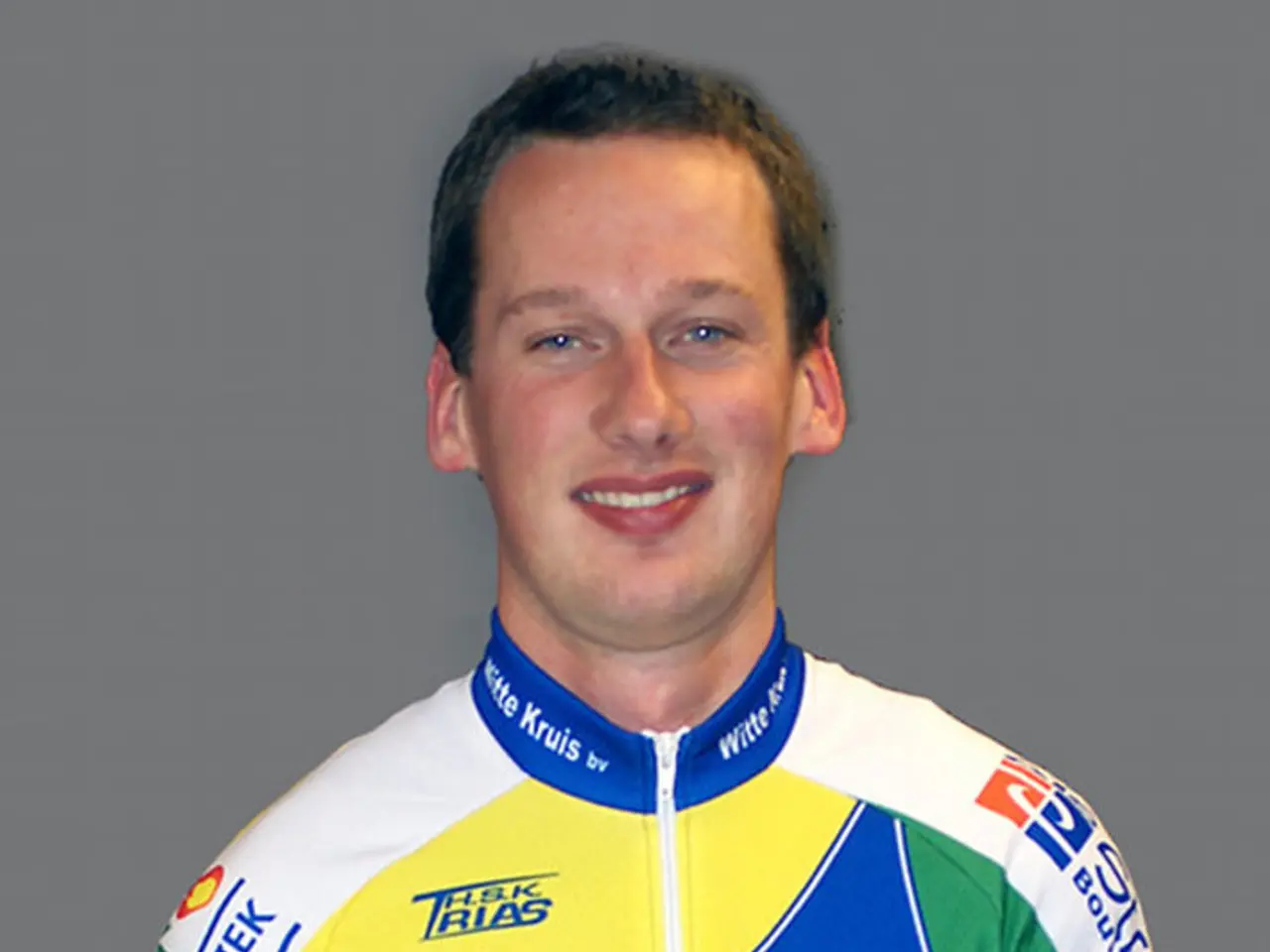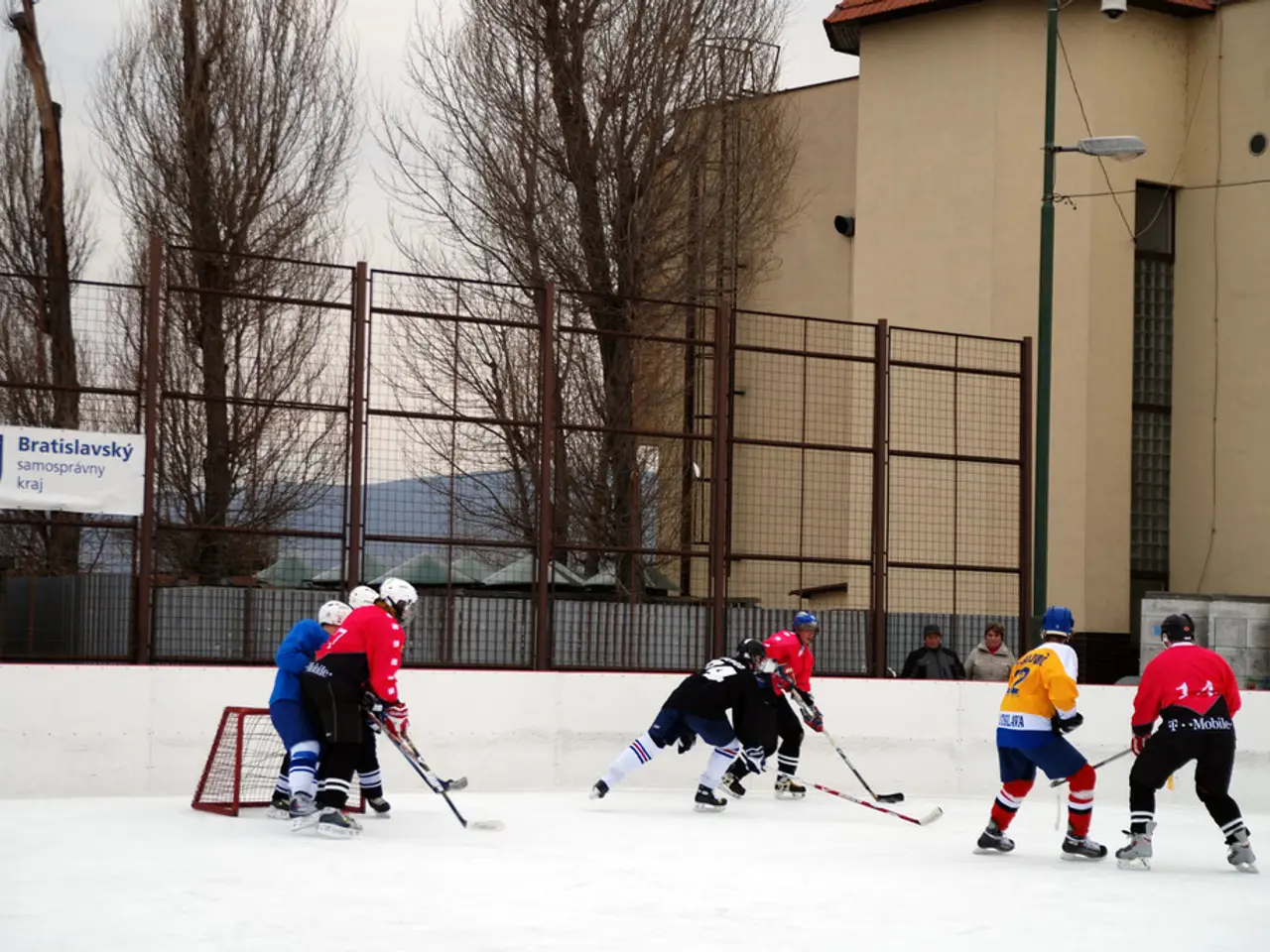Cycling patterns in sports, according to Horner, as speculation surrounding Verstappen escalates
In the ever-evolving world of Formula One, the future of Red Bull Racing and their star driver Max Verstappen is shrouded in uncertainty. Verstappen's contract, which runs until the end of 2028, includes performance-based clauses that could see him leave the team early, should his performance or the team's competitiveness drop significantly by the mid-season break in 2027.
The exact threshold for these clauses is a subject of debate, with some sources suggesting Verstappen must be within the top four in the championship by the start of the summer break, while others propose a stricter condition, requiring him to be in the top two or top three to keep his seat secure without the option to leave.
These performance clauses provide Verstappen with a safeguard, ensuring he is not locked into a contract if the team fails to meet his performance expectations. Sky Sports reported that buying Verstappen out of his contract would require an offer potentially exceeding £100 million, highlighting the high value Red Bull places on him.
Red Bull's team principal, Christian Horner, has acknowledged the existence of these clauses but affirmed Verstappen's intention to remain with the team for the 2026 season and beyond. However, Horner conceded it's impossible to say with 100% certainty that Verstappen will stay with Red Bull indefinitely, given the uncertain pecking order in Formula One after the rule change in 2026.
Horner used the example of Sebastian Vettel, another four-times Red Bull world champion, who left Red Bull for Ferrari after a major rule change in 2014, as a potential precedent. The upcoming year or 2026 could be decisive for Verstappen's future with the team, as Red Bull is building their own engine, marking a bold move against major manufacturers with vast resources and years of experience.
However, Red Bull's 2023 domination has slipped away, with Adrian Newey leaving for Aston Martin and the Honda engines departing in 2026. These departures, coupled with the major chassis and engine change expected in 2026, could be a risk for Verstappen if he triggers the performance clauses.
The true pecking order will only be clear by the end of 2027, according to Horner. Meanwhile, Red Bull's veteran consultant, Helmut Marko, is 82 years old, adding another layer of uncertainty to the team's future.
In recent news, Rob Marshall, a highly influential engineering head, has moved to champions McLaren, further shaking up the Formula One landscape. The future of Red Bull Racing and Max Verstappen remains a topic of much speculation, with the upcoming season and the rule change in 2026 set to be pivotal in determining their fate.
Sports analysts closely watch the performance-based sports-analysis clauses in Max Verstappen's contract, as these could potentially cause a shift in the Formula One landscape. The precise conditions for triggering these clauses, which might have Verstappen leaving Red Bull Racing, are under debate.




